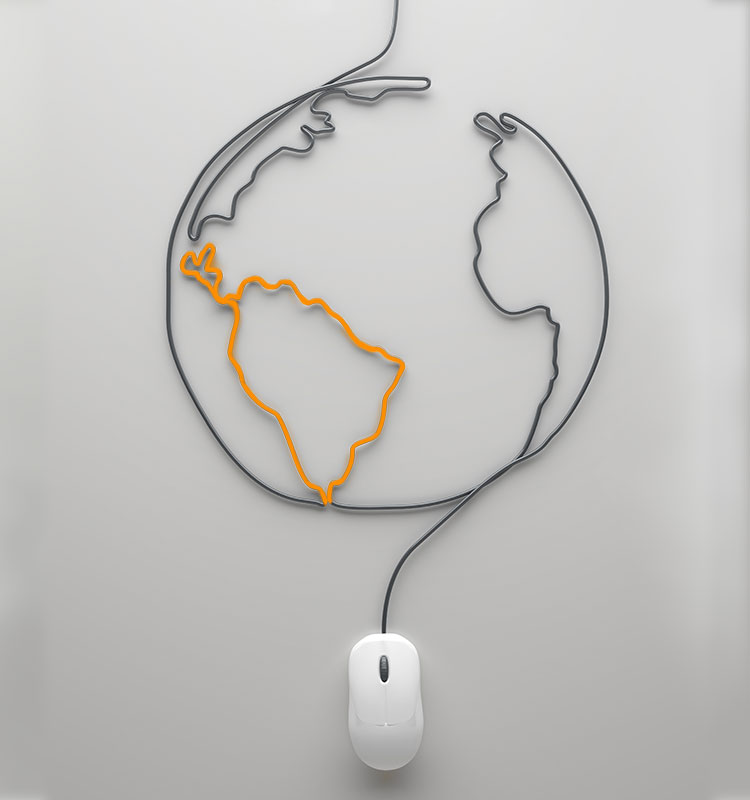
Is your business looking for a professional language service provider for German?
oneword’s language experts would be happy to advise you and prepare a free quote for you after examining your documents. As a language service provider for German, we have a global network of professional native-speaker translators at our disposal to provide translations into and from German that are certified to ISO 17100. And all to your advantage: Every document is technically and grammatically correct and the style and tone are accurately processed and translated by experts and experienced translators.
oneword – German language service provider: certified, cost effective and on time
oneword – German language service provider: certified, cost effective and on time
Bespoke solutions for companies
Translations into German – handling complex sentences and “monster words”
The unique features of the German language
The German language has some special features that distinguish it from other languages. For example, the German alphabet is the only one of the world’s many languages that has the letter “ß” (called the “sharp s” in English, and the “Eszett” or “Sharf-S” in German). It is pronounced “ss”. German texts are often characterised by enormously long complex sentences (parodied in this English sentence!) consisting of many, many subordinate clauses, stacked one after the other, with additional information (often in brackets), leaving the poor translator baffled, because, to make things worse, the subject is of course at the start of the sentence, but one of the features of German grammar is that the verb that relates to it comes at the end, which could be 40 or 50 words or more away from the subject! Can you still remember how the previous sentence started?

“We’ve been working with oneword for more than 10 years, and they have always provided a reliable service for our translation needs. By working together to implement continuous improvements, we benefit from a simple process that allows us to plan with confidence, takes the strain off our day-to-day workload and ensures a high level of quality. We also appreciate the fact that enquiries are dealt with promptly, and the team offers flexibility and knowledgeable advice when we have specific requirements.”
The German language is also famous for its “monster words”, like the famous “Donaudampfschifffahrtskapitän” (Danube steam ship captain). In most other languages, the translator has to break up these compound words with one or more prepositions. This might make the text as a whole less elegant, but does make it much easier to understand the relationships between the individual words in the split up “monster”. It is not unusual for translators who are working on a translation from German to produce a completely unmanageable result in the foreign language (something that Mark Twain called an “alphabetic procession”) to clarify the relationships between the individual words involved. Hyphens are also often used in the formation of compound words. These hyphens frequently result in errors when company-specific terminology is created or used. For this reason, it is important that rules for using the source German terminology are defined before anyone starts recording it, both to ensure that the terminology is consistent, and to guarantee that it can be found effectively in the terminology database. To sum up: If the source language for translations is going to be German, it is definitely a good idea to establish some basic rules for creating translation-friendly documents.
German on the international stage
The most frequently required target language for translations from German is, and continues to be, English. Although Mandarin and other forms of Chinese have the highest total number of native speakers, English is the most widely spoken language worldwide (at least as a lingua franca) and continues to gain in importance. However, there is also no doubt that German is also gaining in significance, for example on the internet. For some years now, German has been the second largest contributor of articles to Wikipedia, the online encyclopaedia (in terms of numbers), beaten only by English. In the statistics for book translations worldwide, German is actually the number 1 target language, followed by Spanish and French. Here, translations into English only come in at 5th place but that is probably because, in many cases, English is already the source language.
Translations from and into German
Germany is the most important partner country for all its direct neighbours, apart from Belgium, when it comes to importing and exporting. As a consequence, many translations into German (and naturally also from German) are needed in a huge range of areas. At the international level, China was the second largest exporter of goods from Germany in 2013. However, as anyone who has ever had to read the instructions for using a piece of Chinese consumer electronics can tell you, professional translations from Chinese into German have often been in short supply! However, while a poor translation for a household product might be something to smile about, the consequences might be life-threatening if the source text is a set of operating instructions for a machine. For a long time, qualified Chinese to German translators were a real rarity, but the number of Germans studying this language combination is now growing steadily. Naturally, having good translators available is not the only factor. The cost plays the primary role. However, for a company to make a professional impression, a professional translation is needed every time, in every language. For a long time, providing content in the language of the target audience has been considered the right approach. Anyone who really wants to address their customers, in the true sense of the word, has to do so in their customers’ language.
You may also be interested in
8 good reasons to choose oneword.
Learn more about what we do and what sets us apart from traditional translation agencies.
We explain 8 good reasons and more to choose oneword for a successful partnership.




